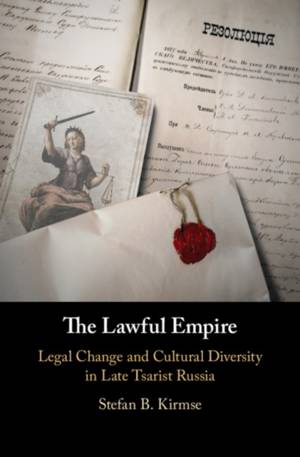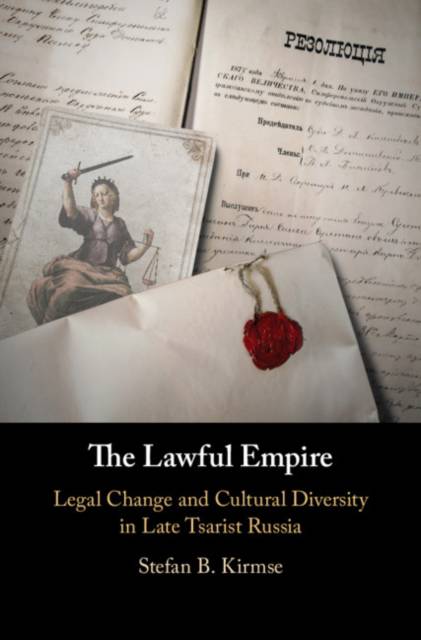
- Afhalen na 1 uur in een winkel met voorraad
- Gratis thuislevering in België vanaf € 30
- Ruim aanbod met 7 miljoen producten
- Afhalen na 1 uur in een winkel met voorraad
- Gratis thuislevering in België vanaf € 30
- Ruim aanbod met 7 miljoen producten
Zoeken
The Lawful Empire
Legal Change and Cultural Diversity in Late Tsarist Russia
Stefan B Kirmse
Hardcover | Engels
€ 125,95
+ 251 punten
Omschrijving
The Russian Empire and its legal institutions have often been associated with arbitrariness, corruption, and the lack of a 'rule of law'. Stefan B. Kirmse challenges these assumptions in this important new study of empire-building, minority rights, and legal practice in late Tsarist Russia, revealing how legal reform transformed ordinary people's interaction with state institutions from the 1860s to the 1890s. By focusing on two regions that stood out for their ethnic and religious diversity, the book follows the spread of the new legal institutions into the open steppe of Southern Russia, especially Crimea, and into the fields and forests of the Middle Volga region around the ancient Tatar capital of Kazan. It explores the degree to which the courts served as instruments of integration: the integration of former borderlands with the imperial centre and the integration of the empire's internal 'others' with the rest of society.
Specificaties
Betrokkenen
- Auteur(s):
- Uitgeverij:
Inhoud
- Aantal bladzijden:
- 310
- Taal:
- Engels
Eigenschappen
- Productcode (EAN):
- 9781108499439
- Verschijningsdatum:
- 9/01/2020
- Uitvoering:
- Hardcover
- Formaat:
- Genaaid
- Afmetingen:
- 152 mm x 241 mm
- Gewicht:
- 693 g

Alleen bij Standaard Boekhandel
+ 251 punten op je klantenkaart van Standaard Boekhandel
Beoordelingen
We publiceren alleen reviews die voldoen aan de voorwaarden voor reviews. Bekijk onze voorwaarden voor reviews.











